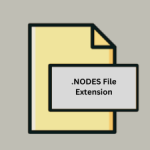.MPC File Extension

Musepack Compressed Audio File
| Developer | Musepack |
| Popularity | |
| Category | Audio Files |
| Format | .MPC |
| Cross Platform | Update Soon |
What is an MPC file?
The .MPC file extension is associated with Musepack, a highly efficient audio compression format used for encoding high-quality audio files.
Developed by Andree Buschmann, Musepack is renowned for its ability to maintain superior audio quality while reducing file size significantly.
This article delves into the origin, history, file structure, advantages, disadvantages, and methods to open and convert .MPC files.
More Information.
Musepack was designed with a primary focus on delivering exceptional audio quality at high compression ratios.
It was created to address the limitations of popular audio compression formats of the time, such as MP3 and AAC, which often sacrificed quality for smaller file sizes.
Musepack aimed to provide audiophiles with a lossy compression format that preserved audio fidelity while still reducing file sizes significantly.
Origin Of This File.
Musepack, often abbreviated as MPC, first emerged in the late 1990s as a response to the need for efficient audio compression formats.
Originally known as MPEGplus, it was later renamed to Musepack to avoid potential confusion with MPEG audio formats.
Andree Buschmann developed Musepack as an open-source project, which contributed to its widespread adoption among audio enthusiasts and professionals.
File Structure Technical Specification.
The .MPC file format, utilized by Musepack Compressed Audio Files, adheres to specific technical specifications.
It supports a wide range of bitrates, spanning from 64 kbps to 500 kbps, while accommodating sampling rates typically between 44.1 kHz and 48 kHz.
Musepack’s compression algorithm relies on psychoacoustic modeling and quantization, enabling it to maintain remarkable audio fidelity while achieving substantial compression. Files encoded with Musepack feature the .MPC extension, simplifying format identification.
This format’s advantages include exceptional audio quality, efficient compression, open-source accessibility, and cross-platform support.
Its limited popularity and potential compatibility issues with older or less mainstream media players should be noted.
Understanding Musepack’s technical specifications is vital for users seeking high-quality audio compression with the .MPC file format.
How to Convert the File?
Converting .MPC files to other audio formats or vice versa can be achieved with the help of dedicated conversion tools. Here’s a step-by-step guide on how to convert .MPC files:
- Choose a Conversion Tool: Start by selecting a reliable audio conversion software that supports .MPC files. Some popular options include Foobar2000, dBpoweramp, and X Lossless Decoder (XLD). These programs are user-friendly and offer a range of output format options.
- Install and Launch the Software: Download and install the chosen conversion software on your computer. After installation, launch the program to begin the conversion process.
- Import .MPC Files: Use the software’s interface to import the .MPC files you want to convert. Typically, you can either drag and drop the files into the program or use the “Add Files” or “Import” option to browse and select your .MPC files.
- Choose Output Format: Once the .MPC files are added to the conversion software, specify the desired output format for the converted files. Most conversion tools support a wide range of formats, including MP3, WAV, FLAC, and more. Select the format that suits your needs.
- Configure Conversion Settings: Depending on the software you’re using, you may have the option to configure various settings, such as bitrate, sample rate, and audio quality. Adjust these settings as needed to achieve the desired output quality and file size.
- Select Output Location: Choose where you want the converted files to be saved on your computer. Create a new folder or use an existing one to store the converted files.
- Start the Conversion: Once you’ve configured all the settings and chosen the output location, initiate the conversion process by clicking the “Convert” or “Start” button in the software. The conversion software will then process your .MPC files and generate the converted files in the specified format.
- Wait for Completion: The time it takes to complete the conversion will depend on the number and size of the .MPC files and the performance of your computer. Be patient and allow the software to finish the conversion.
- Check the Converted Files: After the conversion process is complete, navigate to the output folder you specified earlier. Here, you should find the converted files in the format you selected. Verify that the converted files meet your expectations in terms of quality and format.
- Enjoy Your Converted Files: You can now use and enjoy the converted audio files in the format of your choice on various devices and media players.
Advantages And Disadvantages.
Advantage:
- Superior Audio Quality: Musepack’s primary advantage is its exceptional audio quality. It preserves the nuances and details of the original audio source, making it a preferred choice for audiophiles.
- Efficient Compression: Despite its high-quality output, Musepack achieves impressive compression ratios, reducing file sizes significantly.
- Open-Source: Musepack is open-source, which means that anyone can use and implement it in their applications without licensing fees.
- Cross-Platform Support: Musepack files can be played on various operating systems and media players.
Disadvantage:
- Limited Popularity: While Musepack is praised for its quality, it remains less popular compared to more widely supported formats like MP3 or AAC.
- Compatibility Issues: Some older or less mainstream media players may not support .MPC files by default, requiring additional codecs or software.
How to Open MPC?
Open In Windows
Foobar2000: Foobar2000 is a popular audio player for Windows that natively supports .MPC files. Simply install Foobar2000 and use it to play your .MPC audio files.
Open In Linux
Audacious: Audacious is a cross-platform audio player available for Linux. It supports a wide range of audio formats, including .MPC files. Install Audacious from your Linux distribution’s software repository, and then use it to play your .MPC files.
Open In MAC
X Lossless Decoder (XLD): XLD is a versatile audio tool for macOS that can handle .MPC files. Download and install XLD on your Mac, and then use it to open and play .MPC audio files.
Open In Android
VLC for Android: VLC Media Player is a popular and versatile media player that is available for Android devices. You can download VLC from the Google Play Store and use it to play .MPC files on your Android smartphone or tablet.
Open In IOS
VLC for iOS: VLC Media Player is also available for iOS devices. You can download VLC from the App Store on your iPhone or iPad and use it to play .MPC files on iOS.
Open in Others
For other platforms or specialized media players, it’s essential to check whether they have native support for .MPC files.
If not, you may need to consider converting .MPC files to a more widely supported format, such as MP3 or FLAC, using dedicated audio conversion software on your computer (as mentioned in a previous response). Once converted, these files should be playable on a broader range of devices and platforms.













